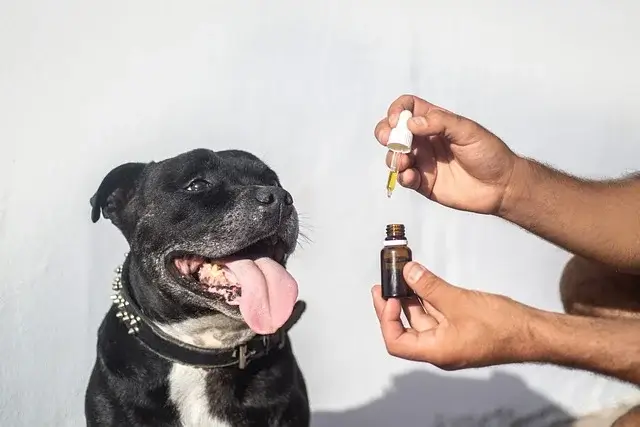Introduction
In recent years, there has been a spike in interest in hemp-derived products in the health and wellness business. Hemp seed oil and CBD oil are two of the most notable players in this market. While these items are frequently linked with comparable advantages, they are sourced from various sections of the hemp plant and have unique properties. In this post, we’ll look at the distinctions between hemp seed oil and CBD oil so you can make an informed decision.
Extraction and Source Hemp seed oil and CBD oil:
Hemp seed oil and CBD oil are derived from various portions of the hemp plant using different methods.
Hemp Seed Oil:
Hemp seed oil is derived from the seeds of the Cannabis sativa plant. The seeds have very little CBD or other cannabinoids. Cold-press extraction is used to produce the oil, which entails mechanically pressing the seeds to extract the oil. This method uses no chemicals and preserves the oil’s original nutritional value.
CBD Oil:
CBD (cannabidiol) oil is extracted from the hemp plant’s flowers, leaves, and stems. These plant components are high in cannabinoids, including CBD. CBD oil is extracted using solvents such as CO2 or ethanol to isolate the cannabinoids from the plant material. As a consequence, a concentrated oil containing multiple cannabinoids, including CBD, is produced.
Cannabinoid Composition
The cannabinoid concentration of hemp seed oil and CBD oil is one of the key variances.
Hemp Seed Oil:
Hemp seed oil contains very few cannabinoids, including CBD. It is instead high in critical fatty acids, including omega-3 and omega-6, as well as vitamins, minerals, and antioxidants. These components contribute to its possible health advantages, which mostly focus on skin health, heart health, and maintaining a healthy diet.
CBD Oil:
CBD oil is highly appreciated due to its cannabinoid concentration, notably CBD. CBD oil can include varying quantities of CBD and other cannabinoids such as THC (tetrahydrocannabinol), depending on the extraction technique and product type. CBD oil is a sought-after product because of the presence of CBD, which has potential medicinal benefits such as pain alleviation, anxiety reduction, and sleep enhancement.
Health Advantages of Hemp seed oil and CBD oil
Hemp seed oil and CBD oil both have a variety of possible health advantages but in different ways.
Hemp Seed Oil:
The nutritional content of hemp seed oil makes it a beneficial supplement to a balanced diet. Its omega-3 and omega-6 fatty acids aid in heart health and inflammation management. The antioxidants in the oil contribute to its anti-aging effect and help protect the body’s cells from oxidative stress. Furthermore, the moisturizing characteristics of hemp seed oil make it a popular component in skin care products, helping to nourish and moisturize the skin.
CBD Oil:
CBD oil is well-known for its possible medicinal effects due to its interaction with the endocannabinoid system, which regulates many biological systems. CBD may provide pain relief by lowering inflammation and interacting with pain receptors, according to research. It also has the potential to reduce anxiety and promote relaxation in the brain by affecting serotonin receptors. Furthermore, continuing research investigates the potential of CBD in treating disorders such as epilepsy, sleeplessness, and potentially some neurodegenerative diseases.
Application and Usage:
Because of the variations in cannabinoid concentration and health benefits, hemp seed oil and CBD oil have different uses and applications.
Hemp Seed Oil:
Because of its nutritious content, hemp seed oil is a flexible element in a variety of culinary creations. It’s great for salad dressings, smoothies, and cooking. Furthermore, because of its moisturizing characteristics, it is a common ingredient in skincare products such as lotions, creams, and serums, which helps soothe and hydrate the skin.
CBD oil:
CBD oil is commonly ingested for its possible medicinal properties. It is available in a variety of forms, including tinctures, pills, edibles, and topicals. Tinctures are frequently taken sublingually (under the tongue) for quicker absorption, whilst capsules and edibles provide a handy and discrete method of consuming CBD. CBD-infused topical treatments can be applied directly to the skin to address localized concerns such as pain or inflammation.
To summarise:
Hemp seed oil and CBD oil are two separate offerings with their own set of advantages in the realm of hemp-derived goods. Hemp seed oil is highly valued for its nutritional content and skin-nourishing characteristics, while CBD oil is sought after for its possible medicinal effects on a variety of health issues. Understanding the distinctions between these two oils enables customers to make educated decisions that are tailored to their unique requirements and tastes. Whether you want to add important fatty acids to your diet or learn more about the possible advantages of CBD, these oils provide unique ways to promote your well-being. Always consult with a healthcare practitioner before incorporating any new supplement or product into your regimen.

